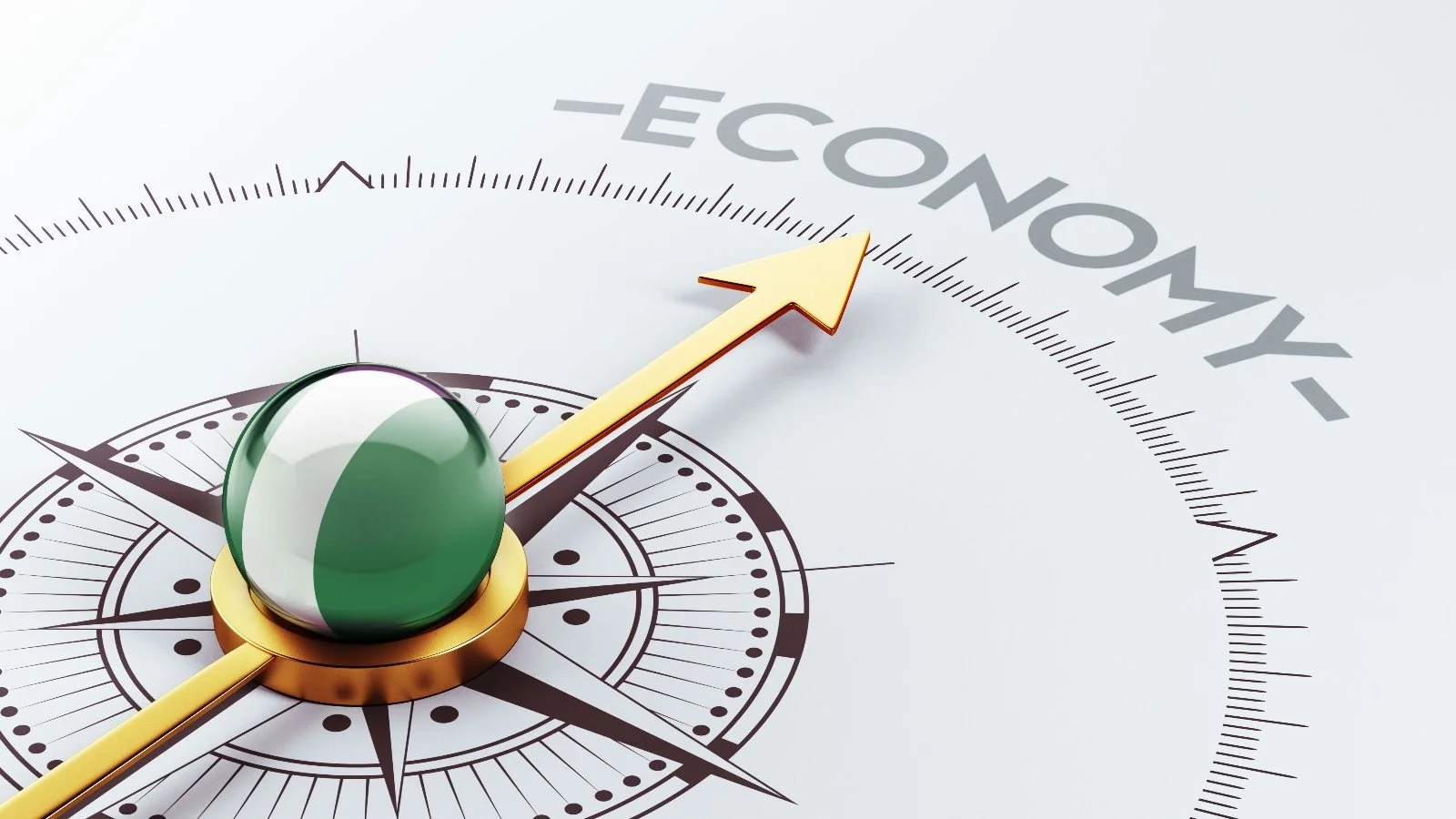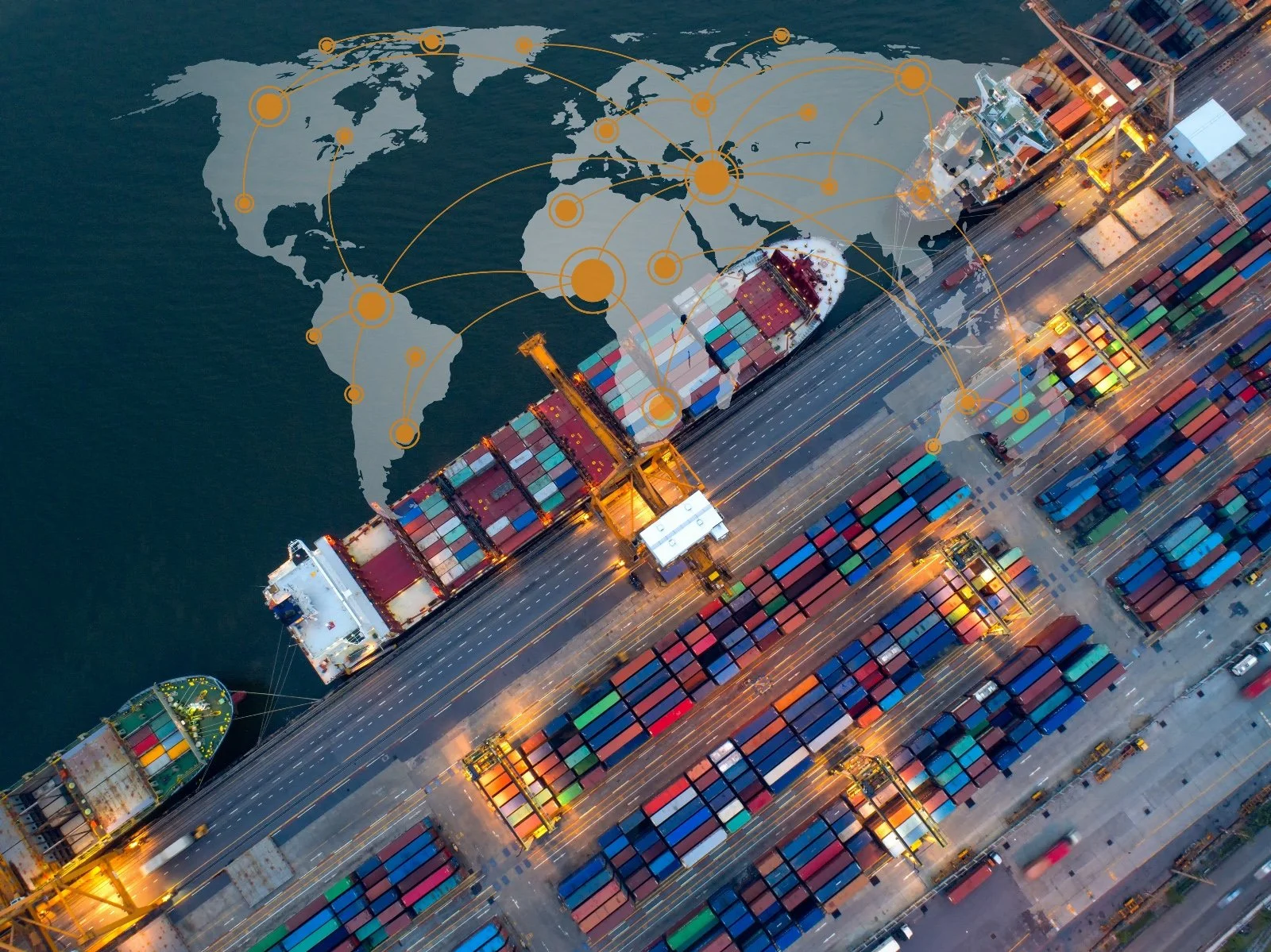The Nexus Between Logistical Infrastructure and Sovereignty - The Case of Djibouti
Ethiopia relies on the Port of Djibouti for over 95% of its imports and exports, generating more than $1 billion annually in port fees for Djibouti. This dependency supports roughly a quarter of Djibouti’s formal workforce and underpins its service-driven economy. As Djibouti cements its role as a key logistics hub in the region, its logistics infrastructure has become a cornerstone of its sovereign strength.
Explore how Djibouti’s geopolitical resilience is deeply tied to its position as a global logistics stronghold in Martin Nkonge’s analysis here.
What’s the Story Behind the Data? Reframing MEL as a Learning Tool
Are we measuring what really matters? Development projects pour billions into solving global challenges—but are they making a real difference? In Rethinking Monitoring and Evaluation in Development, Naam Chakravorty explores why learning must be embedded, not just reported. Read the full article to explore how MEL can move from compliance to impact.
Why Africa Needs a Centralized Sustainability Data Tracking System to Advance Climate Action
Africa stands at a pivotal moment in its climate journey, with bold commitments outlined in National Adaptation Plans (NAPs) and Nationally Determined Contributions (NDCs) to drive resilience and emissions reduction. Yet, these ambitious blueprints remain hindered by a fundamental challenge—the lack of a unified, continent-wide system to track, measure, and report climate progress. Without reliable data infrastructure, African nations struggle to secure climate finance, monitor adaptation efforts, and translate policies and plans into measurable impact. The result? Underfunded, underreported, and under-implemented climate actions that leave the continent vulnerable to escalating climate threats. To bridge this gap, Africa must invest in a pan-African sustainability data system that enhances transparency, strengthens institutional capacity, and unlocks the full potential of NAPs and NDCs. Without it, climate ambitions will remain just that—ambitions.
The King’s Gambit Part 2: Saudi-Africa Relations in the Green Transition Race
Saudi Arabia's energy diplomacy has historically revolved around its substantial oil reserves, granting it significant influence in global energy dynamics. However, in recent years, the Kingdom has focused on diversifying its economy, with an emphasis on entering the mineral resource market. Building domestic processing and industrial value chains is a core element of this broader economic strategy. As Global South nations increasingly aim to develop their processing capacities and downstream supply chains, Saudi Arabia finds itself at a critical juncture to enhance its strategic autonomy, particularly in sectors crucial to the green energy transition.
How a Trump Victory Could Pressure Gulf’s AI Diplomacy Amid US-China Tech War
The rapid evolution of artificial intelligence (AI) and the technological competition between the United States and China is increasingly shaping the geopolitical chessboard of the 21st century. For countries like Saudi Arabia and the UAE, AI diplomacy is emerging as a cornerstone of their foreign policy, enabling them to transition from oil-dependent economies to diversified, technology-driven global players. Yet, this shared ambition is also sparking regional competition between the two Gulf nations, as each seeks to establish itself as the dominant AI hub in the Middle East. Trump’s victory in the recent U.S. presidential elections portends a more protectionist foreign policy, which could further complicate this regional rivalry by prompting both nations to recalibrate their AI strategies in the face of intensified U.S.-China tech competition.
Bridging the Gap Between Potential and Practicality in Green Hydrogen
Green hydrogen, often called the fuel of the future, offers a zero-emission solution for decarbonizing hard-to-abate sectors and is becoming a cornerstone of global energy strategy. As the clean energy transition accelerates, regions rich in renewables—particularly the Gulf, Europe, and Africa—are competing to lead in green hydrogen production. This race underscores its transformative potential to diversify energy portfolios and cut emissions. However, turning this promise into reality requires overcoming challenges in cost, infrastructure, and market demand.
Balancing Africa's Gas Export Ambitions with Regional Integration
Africa's projected 25% increase in LNG production by 2026 presents promising economic opportunities, yet demands a balanced approach between export ambitions and regional energy security. While export infrastructure drives economic growth, it must integrate domestic and regional needs to ensure sustainable development.
The Localization Paradox: Privatization with Pragmatism
African nations face a paradox: while they strive to add value through local processing, their reliance on foreign technology and expertise continues to undermine their bid for self-sufficiency.
Rewiring Africa's Payments Landscape for Trade Growth
Africa's fragmented payment systems present significant barriers to cross-border trade, causing delays and inflated costs. How can we transform these challenges into opportunities to unlock the continent's economic potential?
Digital Dreams, Economic Realities and the Limits of Shortcuts
The concept of leapfrogging, which promotes bypassing traditional economic development stages through technology, often neglects the importance of job creation and industrial growth. This piece critiques the myth of leapfrogging as a shortcut to prosperity, emphasizing the need for diversified economic bases, employment elasticity, and sustainable development strategies that prioritize inclusive growth over digital illusions. India's jobless growth and Nigeria's low-quality employment issues exemplify the risks of relying solely on technology without addressing structural economic foundations. For true progress, investment in infrastructure, education, and productive capacity is crucial, not just technological innovation.
Bridging the ‘Gulf’ Towards Scaled Impact: How to Unlock CSR Potential
The Gulf is known for its generous philanthropic traditions, yet corporate social responsibility (CSR) in the region often falls short of its potential due to a lack of strategic frameworks. While regulatory compliance drives CSR initiatives, many are reactive and narrow in scope, limiting their long-term impact. This article explores how businesses can move beyond ad-hoc efforts and government-backed initiatives to adopt a strategic approach to CSR. By aligning CSR with business objectives, as seen in Careem’s model, companies can create both social and commercial value. Discover the barriers and opportunities for CSR in the Middle East and how firms can harness it as a tool for growth and innovation.
The Geopolitical Cost of Connectivity: Africa's Reliance on Foreign Data Infrastructure
Africa's growing digital divide with the West is rooted in imbalanced data infrastructure and outdated communication systems. With 50% of data centers in the US and less than 2% in Africa, Western tech giants exploit African user data. To bridge the gap, Africa needs robust data protection and investment in local digital infrastructure.
The Gilded Cage: How Government Debt Appetite Stifles Economic Growth
Across Africa, a concerning financial trend is unfolding that threatens long-term economic development. Government bonds offering remarkably high yields have become the dominant investment choice, drawing capital away from other critical sectors of the economy. This piece explores the “gilded cage”phenomenon of exorbitant government debt appetite stifling economic diversification and growth.
Resilience Amidst Adversity: Localization in Nigeria's Ailing Economy
Nigeria, Africa's largest economy, is set to become the world's fourth-most populous country by 2050. However, it is currently facing significant economic challenges, including rampant inflation and a weakening currency due to President Tinubu's recent reforms. These issues have led to an exodus of Western multinationals, highlighting the tough economic environment. Citing the lessons from those riding the tide, Martin Nkonge, Botho's Analyst, argues that businesses must localize production, add value, and strategize to adapt to Nigeria's unique market conditions for long-term resilience amid ongoing volatility.
Is Education in Kenya Market-Aligned?
Kenya's education curriculum has been criticized for not aligning with market demands, favoring theoretical over practical and vocational education. This results in a mismatch between taught skills and job opportunities. Independent Education Consultant, Margaret Muhoro, and Botho's Analyst, Gerald Kilimo, argue that robust private sector engagement can bridge this gap, allowing companies to meet their talent needs locally while ensuring students gain employable skills.
Architecting Africa’s AI Future: Strategic Imperatives For Success
Artificial Intelligence (AI) is the current hot topic driving conversations about the future of employment, innovation, and human potential. In Africa, this discourse is marked by both curiosity of its potential and caution over its responsible use.
In this latest Brief, Botho Emerging Markets Group explores both the opportunities and obstacles that lie ahead with the development, deployment and use of AI in Africa. We discuss the current state of AI readiness across Africa, highlighting pioneering efforts that showcase the continent's potential to develop local solutions.
Djibouti's Financial Leap: Paving the Way to Prosperity
Djibouti stands at a critical juncture in its economic development, aiming to become a key player in Africa's financial landscape. Djibouti can diversify its financial markets by leveraging its strategic location, embracing green financing, and strategically utilizing its sovereign wealth fund to advance its capital markets.
Microfinance and Digital Banking Can Transform Developing Countries Like Pakistan
Pakistan is home to 3% of the world's population and 8.2% of the world's unbanked adults. A blend of microfinance and digital banking can enhance financial inclusion, alleviate poverty and inequality, and ensure inclusive and sustainable economic growth in Pakistan.
DP World and AD Ports: The Emirati Logistics Firms Driving UAE’s Investments in Africa
DP World and Abu Dhabi Ports Group, two of the leading logistic behemoths from the UAE, act as conduits for the UAE's broader investment efforts in Africa. However, the port companies have various convergences and divergences in their engagement strategy.
What Does Stability in a Post-ATMIS Somalia Look Like?
Since the African Union Transition Mission in Somalia (ATMIS)’s inception In April 2022, ATMIS has focused on protecting key government installations, reducing Al Shabaab's influence, reclaiming occupied territories, and improving humanitarian aid to Somalis. Two years later, as ATMIS withdraws from Somalia, Somalia’s stability is in question.





















